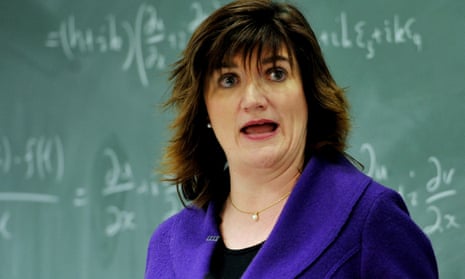The government is facing opposition from its supporters on Conservative-held county councils who are angry about plans to force all schools to become academies.
Leading Tory councillors across the country, dismayed by key elements of the education white paper outlined by the government last week, are calling on education secretary Nicky Morgan to rethink her policy of compulsory academisation for all schools.
Their concerns echo those of many teachers and parents, who took part in rallies in London and many other towns and cities on Wednesday, to protest against the government’s forced academy programme.
Around the country, councillors – many of them lifelong Tories who have devoted decades to working with schools in their areas and in many cases improving attainment – expressed profound reservations about the changes.
The government’s white paper, Educational Excellence Everywhere, says all schools that have not begun to convert to academy status by 2020 will be directed to do so under new powers. Councils will lose responsibility for the remaining maintained schools, the majority of which will be expected to join multi-academy trusts, regardless of performance.
“I feel really angry,” said Melinda Tilley, cabinet member for education for Oxfordshire county council, which covers the prime minister’s Witney constituency.
“If it’s not broke don’t fix it. I don’t think schools should be forced. We’ve been supportive of the government’s agenda. We were going along quite well, helping schools to convert where we could. Now all of a sudden they are going to force the rest of them. It makes my blood boil. I’m put in a position where I can’t protect schools. One size does not fit all.”

Tilley, who has been a Tory councillor for 18 years, expressed grave concerns about the capacity of the Department for Education and the regional schools commissioners to cope with the additional workload. She also bemoaned government plans to scrap mandatory parent governors “who are great levellers” within a school community.
“I suppose I’m going to have to suck it up but I think they’ve gone bonkers,” she said. “We made a really determined effort to keep all the academies in our family of schools in Oxfordshire. We had them come in and talk to us about what we could do to help.
“This has just blown that right out of the water. Now we will have no relationship with them. All of a sudden it’s going - after all the hard work and the years of deeply caring about it.”
Roy Perry, Tory leader of Hampshire county council, urged the government to focus on dealing with schools where there are problems, “rather than forcing good or outstanding schools to go down a route they don’t want to go”.
“We have already raised concerns with the Department for Education, and are keen to engage with them on a range of important questions raised by the white paper.”
Perry, who also speaks on a national level as chair of the Local Government Association’s children and young people board, has always been open-minded about academies. But on forced academisation, he said it was like an entire class of children being kept back for detention just because one or two have misbehaved.
Arthur Barker, executive member for schools on North Yorkshire county council – where only about a 7% of primary schools and a quarter of secondaries are academies – said: “I’ve no objection to academies.
“But you need time to do it. You need bodies on the ground. You need dedicated officers to do it. One of my concerns is the availability of capacity. It’s a big ask. It’s a lot of schools nationally.”
Barker expressed concern that small, rural schools in North Yorkshire – some with fewer than 50 pupils – might not be attractive to sponsors, so might be forced to close. He’s also worried about the availability of good quality multi-academy trusts to take over the large number of maintained schools still to convert.
Ivan Ould, a former head teacher and Tory cabinet member for children and families on Leicestershire county council, said: “The government seems to be determined to take responsibility for anything to do with education away from local authorities.
“I hold a different viewpoint. If you’ve got effective local authorities you should take the best practice and expand it across the county. This seems to be throwing out good practice for the sake of dogma and risking the possibility that standards may fall.
“I do not believe a system driven by dogma will meet the needs of children. I’m not comfortable with coercion. If the idea is such a wonderful idea, why is there any need for coercion?”
Ray Gooding, cabinet member for education on Essex county council, where two thirds of the county’s 570 schools are now academies, agreed: “It would be better if it could follow its own course rather than being bludgeoned along.
He and his colleagues will be lobbying government to address their concerns. “It’s not that we are necessarily against the process, but we need to make sure it’s been properly thought through.”
Roger Gough, cabinet member for education on Kent county council, added: “I would prefer to see a move away from compulsion.” He also echoed others’ concerns about the loss of parent governors. “I think that reflects it’s a corporation, rather than a community model of what a school is about.”
An education department spokesperson said: “Pupils are already benefitting hugely from the academies programme and thanks to our reforms more of them than ever before are going to good or outstanding schools.
“The changes we are making will put control back in the hands of teachers and school leaders – those who know their pupils best – making sure every single child has the opportunity to fulfil their potential.”
- This article was amended on 24 March 2016. An earlier version referred to the Local Government Association as the Local Government Authority. This has been corrected.

Comments (…)
Sign in or create your Guardian account to join the discussion